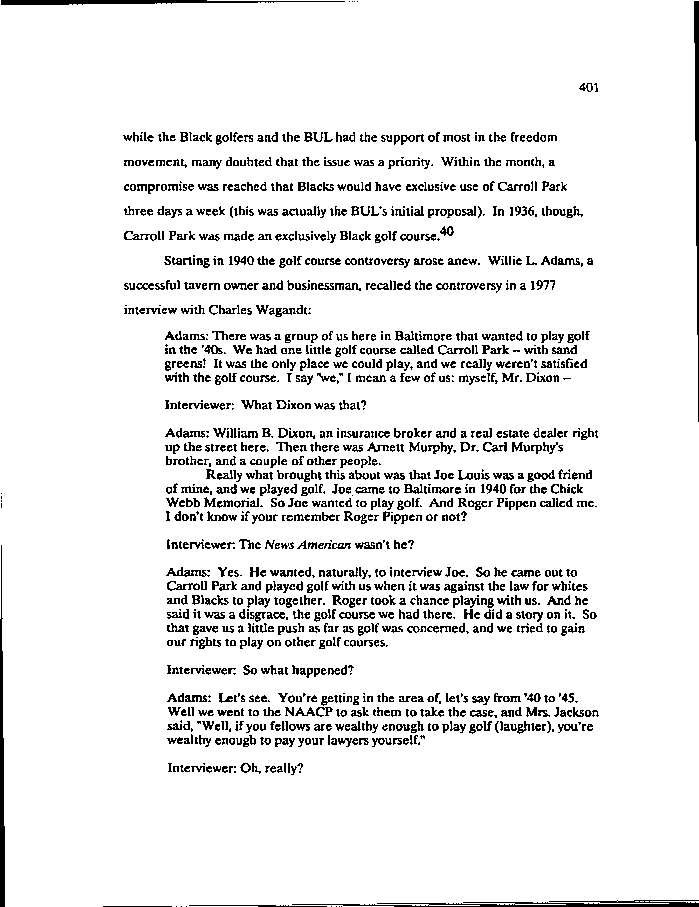|
401
while the Black golfers and the BUL had the support of most in the freedom
movement, many doubted that the issue was a priority. Within the month, a
compromise was reached that Blacks would have exclusive use of Carroll Park
three days a week (this was actually the BUL's initial proposal). In 1936, though,
Carroll Park was made an exclusively Black golf course.
Starting in 1940 the golf course controversy arose anew. Willie L. Adams, a
successful tavern owner and businessman, recalled the controversy in a 1977
interview with Charles Wagandt:
Adams: There was a group of us here in Baltimore that wanted to play golf
in the '40s. We had one little golf course called Carroll Park - with sand
greens! It was the only place we could play, and we really weren't satisfied
with the golf course. I say "we," I mean a few of us: myself, Mr. Dixon -
Interviewer: What Dixon was that?
Adams: William B. Dixon, an insurance broker and a real estate dealer right
up the street here. Then there was Arnett Murphy, Dr. Carl Murphy's
brother, and a couple of other people.
Really what brought this about was that Joe Louis was a good friend
of mine, and we played golf. Joe came to Baltimore in 1940 for the Chick
Webb Memorial. So Joe wanted to play golf. And Roger Pippen called me.
I don't know if your remember Roger Pippen or not?
Interviewer: The News American wasn't he?
Adams: Yes. He wanted, naturally, to interview Joe. So he came out to
Carroll Park and played golf with us when it was against the law for whites
and Blacks to play together. Roger took a chance playing with us. And he
said it was a disgrace, the golf course we had there. He did a story on it. So
that gave us a little push as far as golf was concerned, and we tried to gain
our rights to play on other golf courses.
Interviewer: So what happened?
Adams: Let's see. You're getting in the area of, let's say from '40 to '45.
Well we went to the NAACP to ask them to take the case, and Mrs. Jackson
said, "Well, if you fellows are wealthy enough to play golf (laughter), you're
wealthy enough to pay your lawyers yourself."
Interviewer Oh, really?
|

